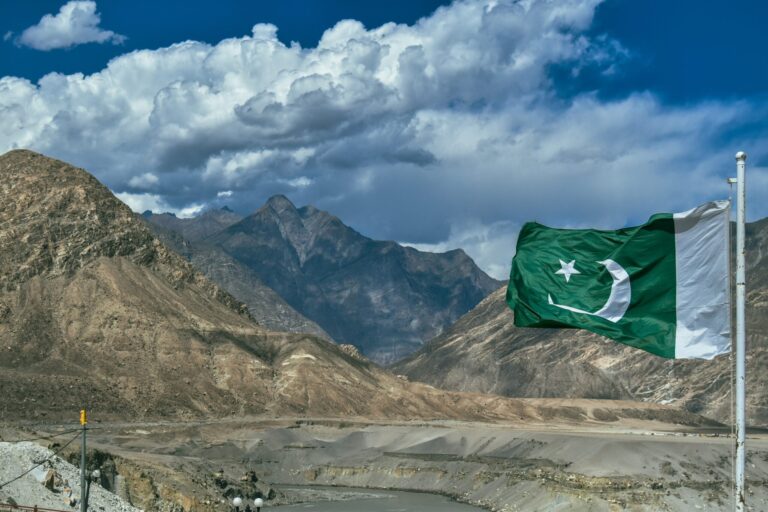Written by Lawrence Butt
Pakistan, located in the heart of South Asia, is a country with a rich history, diverse culture, and complex politics. Since its founding in 1947, Pakistan has undergone a turbulent journey through democracy, military rule, and political instability. The country is currently at a critical stage, grappling with complex challenges ranging from economic hardship to regional tensions, against the backdrop of a dynamic and evolving political landscape. Understanding the complexity of Pakistan’s political dynamics has become essential as the country continues to shape its future amid internal and external pressures.
Khan, a popular political candidate who was ousted in 2018, was arrested by the Pakistani government on corruption charges after it emerged in November 2023 that he had been the target of an assassination attempt. Many senior members of his party were subject to similar scrutiny, which was seen by his supporters as nothing more than political persecution. Khan was banned from political life for five years, and was also banned from participating in his party’s elections during the same period. After repeated riots and accusations, calm finally prevailed, and many looked to the next election as a chance for justice.
The 2024 Pakistani elections were awaited with great anticipation and were seen as an opportunity for change. On February 8 this year, Pakistan held elections to elect its 16th parliament despite allegations of pre-poll fraud. “There was a lot of speculation that the election would be predetermined by vested interests like the military and intelligence agencies,” said Dr. Christine Kim, assistant professor of international relations at Cedarville University. “However, the actual election results showed that former Prime Minister Imran Khan and the Pakistan Tehreek-e-Insaf (PTI), which was established in 2018, remained popular with voters. Many legal and political Despite challenges, PTI independent candidates won 93 out of 336 seats in the 16th National Assembly.
Dr. Glenn Duerr, chair of the Department of History and Government and professor of international relations, highlighted past military intrusions into Pakistan’s electoral process and its restrictive forms of Sharia law and rampant corruption.
“In that sense, not much has changed,” Duerr said. “However, there are major issues surrounding former Prime Minister Khan, which could plunge Pakistan into even more serious turmoil.”
Khan and his party have suffered major setbacks, both political and personal, including an assassination attempt and the party’s outlawing. The party remains divided.
“His appointment as prime minister and subsequent removal as prime minister deeply divided Pakistan. His Western views and norms, some of which were so negative and narcissistic, that some parts of the country He’s very unpopular,” Duer said. “But the legal situation is to some extent politically motivated, and there is a decline in trust in the system among his supporters.”
Despite the setbacks, Mr. Khan and his party have supporters and have proven to be popular among certain demographics.
“…Imran Khan and his party proved popular despite having the party stripped of its electoral symbols…women voters in particular were active in favor of PTI-backed candidates. “I campaigned for the election,” Kim said. “PTI has established itself as a major political force in Pakistan.”
Seemingly sweeping political reforms, such as updating electoral registers and introducing biometric identification systems, appear to be eroding democratic freedoms.
“As a result of the reforms, there has been some erosion of democratic governance in Pakistan, which in any case was neither free nor fair before the last elections,” Duar said. “According to Freedom House, the score for 2023-2024 has dropped from 37 (out of 100) to 35. In general, the reforms appear to be regressive and arbitrarily targeted at Khan. In some ways, it mirrors what has happened in American politics: There were some missteps, but they probably weren’t enough to prevent the candidate from taking office.
Fortunately, religious minorities, including Christians, appear to have largely escaped political attack.
“Depending on the party in power, minorities can be better protected or they can be much more vulnerable,” Duer said. “Moderate parties are generally valued by all minorities, not just Christians, because they have more freedom in society.”
But that doesn’t mean they can escape all persecution.
“According to the World Watch List, compiled and published annually by Open Door Ministries, Pakistan ranks seventh in the world in terms of church persecution,” Kim said. “We need to pray for our brothers and sisters in Pakistan who must worship Jesus in a politically unstable, economically unstable, and religiously repressive country.”
As Pakistan faces internal conflict and external pressure, the 2024 elections symbolized both hope for change and uncertainty about the country’s future. These elections not only challenged preconceived notions of power but also raised questions about the future of democracy in Pakistan. As the country navigates political doubts, the resilience of its democratic institutions will be tested. While it certainly hasn’t gone as smoothly as hoped, many minorities, including Christians, are celebrating that their voices are still being heard.
Laurence Butt is a junior IT management major and an off-campus reporter at Cedars. When I’m not writing, I enjoy playing with friends, spending time outdoors, and trying to get better at video games.

